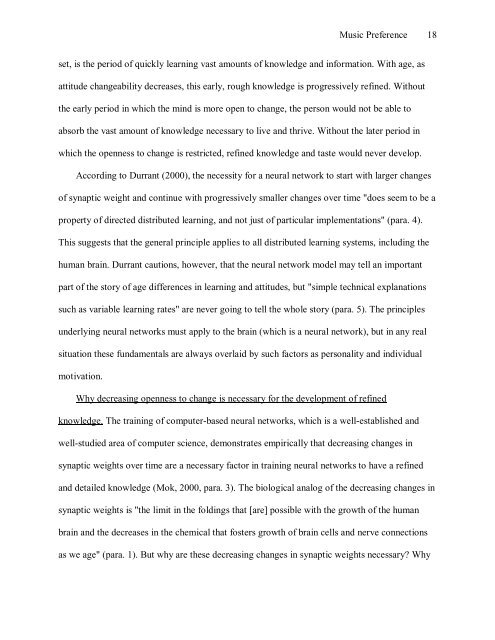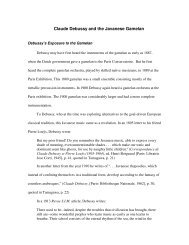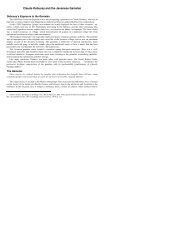Music Preference 1 - Brent Hugh's personal and business web pages
Music Preference 1 - Brent Hugh's personal and business web pages
Music Preference 1 - Brent Hugh's personal and business web pages
Create successful ePaper yourself
Turn your PDF publications into a flip-book with our unique Google optimized e-Paper software.
<strong>Music</strong> <strong>Preference</strong> 18<br />
set, is the period of quickly learning vast amounts of knowledge <strong>and</strong> information. With age, as<br />
attitude changeability decreases, this early, rough knowledge is progressively refined. Without<br />
the early period in which the mind is more open to change, the person would not be able to<br />
absorb the vast amount of knowledge necessary to live <strong>and</strong> thrive. Without the later period in<br />
which the openness to change is restricted, refined knowledge <strong>and</strong> taste would never develop.<br />
According to Durrant (2000), the necessity for a neural network to start with larger changes<br />
of synaptic weight <strong>and</strong> continue with progressively smaller changes over time "does seem to be a<br />
property of directed distributed learning, <strong>and</strong> not just of particular implementations" (para. 4).<br />
This suggests that the general principle applies to all distributed learning systems, including the<br />
human brain. Durrant cautions, however, that the neural network model may tell an important<br />
part of the story of age differences in learning <strong>and</strong> attitudes, but "simple technical explanations<br />
such as variable learning rates" are never going to tell the whole story (para. 5). The principles<br />
underlying neural networks must apply to the brain (which is a neural network), but in any real<br />
situation these fundamentals are always overlaid by such factors as <strong>personal</strong>ity <strong>and</strong> individual<br />
motivation.<br />
Why decreasing openness to change is necessary for the development of refined<br />
knowledge. The training of computer-based neural networks, which is a well-established <strong>and</strong><br />
well-studied area of computer science, demonstrates empirically that decreasing changes in<br />
synaptic weights over time are a necessary factor in training neural networks to have a refined<br />
<strong>and</strong> detailed knowledge (Mok, 2000, para. 3). The biological analog of the decreasing changes in<br />
synaptic weights is "the limit in the foldings that [are] possible with the growth of the human<br />
brain <strong>and</strong> the decreases in the chemical that fosters growth of brain cells <strong>and</strong> nerve connections<br />
as we age" (para. 1). But why are these decreasing changes in synaptic weights necessary? Why





